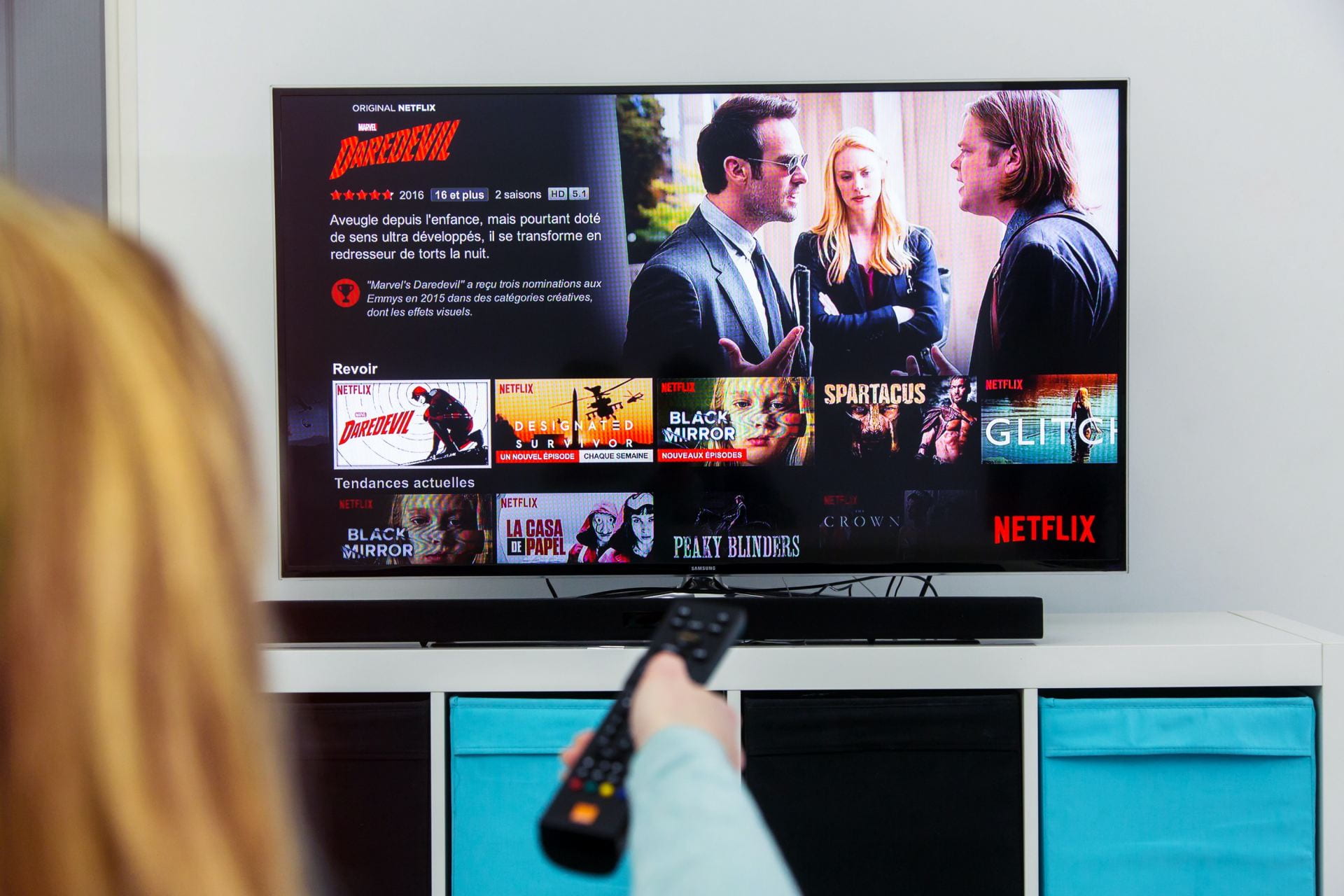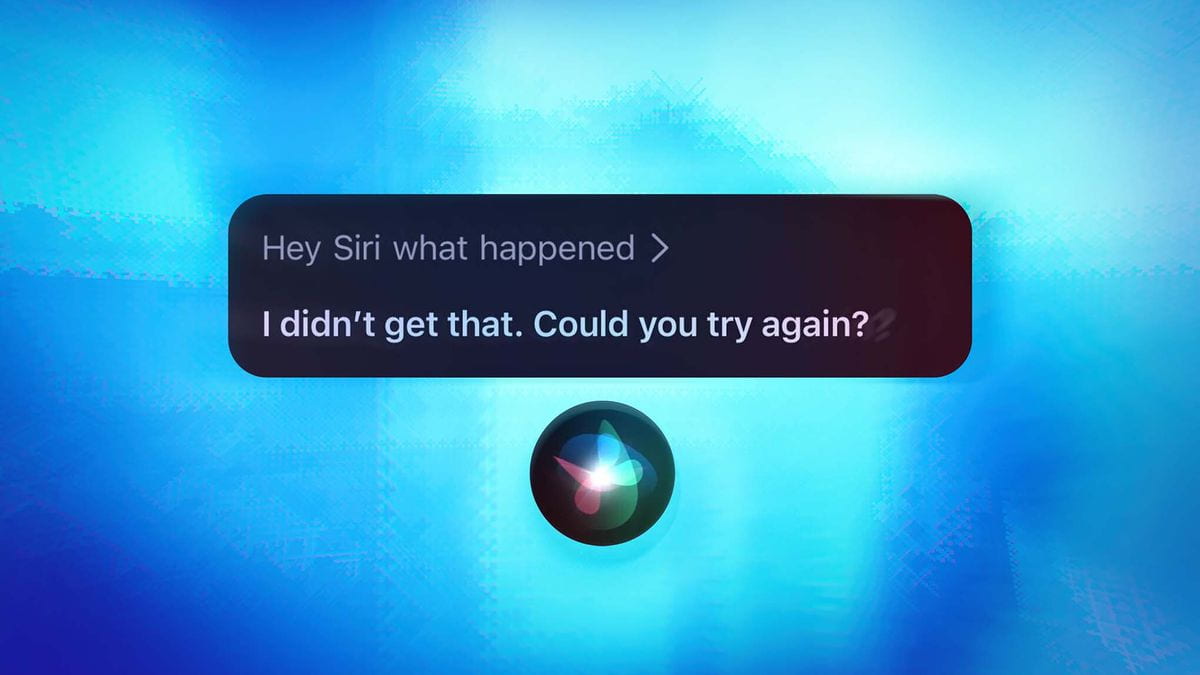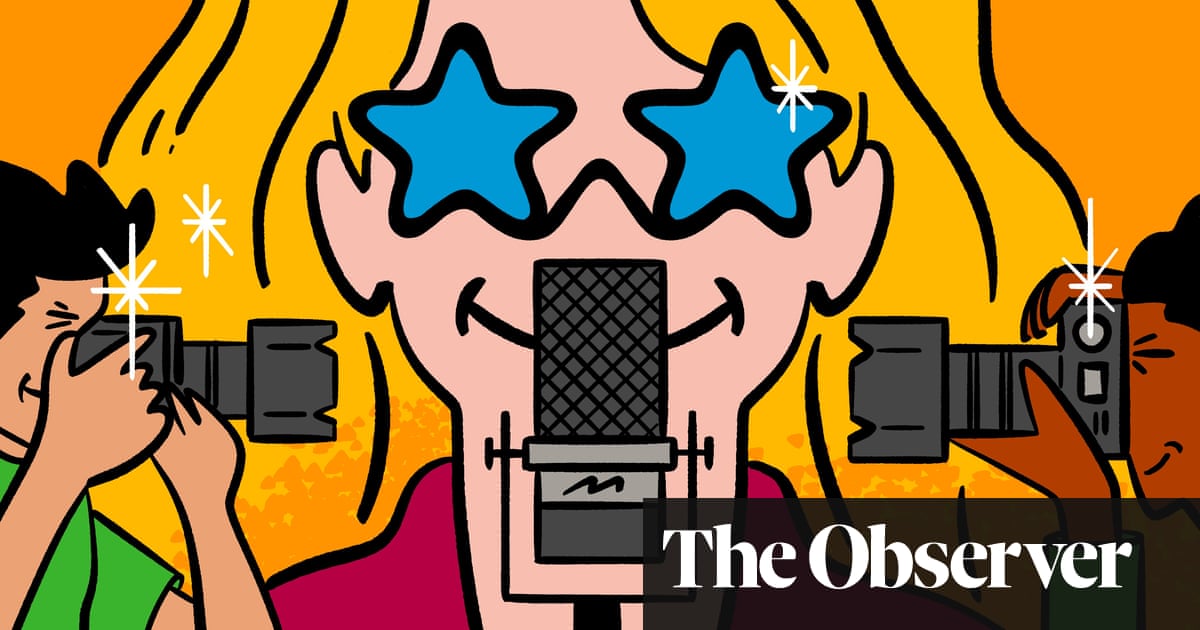audio
How Netflix affects what we watch and who we are — and it’s not just the algorithm
The possibilities of streaming have inspired a new “classificatory imagination”. I coined this term to describe how viewing the world through genres, labels and categories helps shape our own identities and sense of place in the world.
While 50 years ago, you might have discovered a handful of music genres through friends or by going to the record shop, the advent of streaming has brought classification and genre to our media consumption on a grand scale. Spotify alone has over five thousand music genres. Listeners also come up with their own genre labels when creating playlists. We are constantly fed new labels and categories as we consume music, films and television.
Source: How Netflix affects what we watch and who we are — and it’s not just the algorithm
The next big thing in podcasts is talking back
“Podcasting has always been this sort of one-way street,” says Mike Mignano, head of creation platform at Spotify. “A creator publishes content; the audience listens; that’s it.”
Now, however, interactive elements are making their way into the space. Spotify is giving all its Anchor creators the ability to make polls and Q&As and is testing interactive ads. Other apps, like Facebook, are trying things as simple as just allowing listeners to leave comments — a mainstay YouTube feature — while podcasting apps in China already allow listeners to build “listening circles” and “discussion groups.”
Why improvisation is the future in an AI-dominated world
Machines have long excelled at activities involving consistent reproduction of a fixed object – think identical Toyotas being mass-produced in a factory. More improvised activities are less rule-based, more fluid, chaotic or reactive, and are more process-oriented. AI has been making significant strides in this area.
Source: Why improvisation is the future in an AI-dominated world
Spotify Has Made All Music Into Background Music
Is the collapse of genre boundaries and the erosion of fervent musical loyalties a good thing?
Hey Siri, what happened?
Everyone who uses Siri has their own tales of frustration — times when they’ve been surprised not by the intelligence but the stupidity of Apple’s assistant, when it fails to carry out a simple command or mishears a clear instruction. And while voice interfaces have indeed become widespread, Apple, despite being first to market, no longer leads. Its “humble personal assistant” remains humble indeed: inferior to Google Assistant on mobile and outmaneuvered by Amazon’s Alexa in the home.
Source: Hey Siri, what happened?
America as an Internet Aesthetic
@berryianeits our first time omg everything was so aesthetic!! leave me starbies recs im new ˊᵕˋ)੭ ##aesthetic##aestheticsnacks##snackhaul##animecore##americancore
TikTok’s Americancore meme critiques cultural appropriation by exoticizing the familiar. Who has the last laugh?
Source: America as an Internet Aesthetic
Beyoncé, Jay-Z blasted over Basquiat painting in Tiffany & Co. ad
New York City’s preeminent power couple, Beyoncé and Jay-Z, are facing backlash online after appearing in a new Tiffany & Co. advertising campaign that features a never-before-seen painting by late NY artist Jean-Michel Basquiat. Many critics are wondering how the anti-capitalist Basquiat would feel about having his work featured in a jewelry ad.
Source: Beyoncé, Jay-Z blasted over Basquiat painting in Tiffany & Co. ad
Trailers Use Slower and Moodier New Versions of Classic Songs to Lure Viewers
Says Brian Monaco, president and global chief marketing officer at Sony Music Publishing: “It’s called ‘trailerizing’ a song. That means changing every aspect of the song but leaving the lyrics. People know the lyrics. The goal is to catch people’s attention. Maybe they’re not paying as much attention to the trailer, and they start to hear the chorus of the song, and they go, ‘Wait, I know this song.’ They start paying attention, and now they’re watching the trailer.”
Source: Trailers Use Slower and Moodier New Versions of Classic Songs to Lure Viewers
The Case Against Music Curation
We are now deep into a decade of lifestyle curation. Our news feeds on Facebook, the movies we catalog on Netflix, the playlists we make and then loop over and over on Apple Music; the need to personalize everything we do, and everything we consume, is meant to remove unnecessary friction from our lives. It’s meant to make things as seamless as possible. Through brainy algorithms and constant curation, singles like “Essence” benefit from that sort of tireless indexing. Eventually, they exist everywhere. But what if that way no longer serves us?
Source: The Case Against Music Curation
Afghans are racing to erase their online lives
Every photo and every data point is a link to the old way of life in Afghanistan – and a reason for Taliban retribution
The News Is Dead, Long Live the News!
Public interest journalism may not be salvageable. But more than being saved, it needs to be radically rethought.
Advertising fuels $1.34bn piracy market
Online criminals who offer stolen movies, TV shows, games, and live events through websites and apps are reaping $1.34 billion (€1.14bn) in annual advertising revenues – including from some of the most iconic global companies.
Hit songs rely on increasing “harmonic surprise” to hook listeners, study finds
A study of “harmonic surprise”—points where the music deviates from listener expectations—in popular music over several decades found that Childish Gambino’s “This Is America” had the most contrastive harmonic surprise. Hip-hop artist Childish Gambino (aka actor Donald Glover ) made a splash in 2018 with the release of his Grammy-winning hit single, ” This Is America .” With its stark, sudden shifts between choral melodies in major chords and menacing percussive elements drawn from the trap subgenre , the song constantly defies the listener’s expectations throughout.
Source: Hit songs rely on increasing “harmonic surprise” to hook listeners, study finds
Questlove on Restoring Black Music History and Making One of the Year’s Best Films
The Roots drummer discusses Summer of Soul, his new documentary about the 1969 Harlem Cultural Festival, and the ongoing fight to give Black musicians their rightful due.
Source: Questlove on Restoring Black Music History and Making One of the Year’s Best Films
Listen up: why indie podcasts are in peril
As big spenders such as Amazon and Spotify fill our ears with more commercial, celebrity-driven fare, can grassroots, diverse shows survive?
‘Woodstock ’99’ Documentary: A Long Day’s Journey Into ‘Break Stuff’
A new HBO doc looks back on the disaster that was three days of music, rage and toxic masculinity run amuck.
Source: ‘Woodstock ’99’ Documentary: A Long Day’s Journey Into ‘Break Stuff’
Climate change is literally melting vinyl records
Recent ultra-hot weather has been causing vinyl records to warp during shipping to record stores and consumers. The melting is particularly hard on independent labels who have limited resources.
Spotify and music listening: the next 10 years
In 2015 Spotify’s Daniel Ek said that he wanted Spotify to ‘be the soundtrack of your life’. Undoubtedly, Spotify and other streaming services are achieving that but the utopian vision is more prosaic in practice. Less ‘that was the best day of the summer’ and more ‘put on some tunes while I cook’. It is a soundtrack, but less the soundtrack to a blockbuster movie and instead more like the soundtrack to daytime TV. Music has become sonic wallpaper that is a constant backdrop to our daily mundanity.
Source: Spotify and music listening: the next 10 years [Mark Mulligan]
A Dialect Coach Assesses Every Russian Accent in Black Widow
Florence Pugh said she was “scared” for her Russian accent to debut in Black Widow , and who can blame her? Putting on any accent can be tricky for actors to begin with , and with a Russian one, there’s always the risk you could wind up sounding like one of the villains from Rocky & Bullwinkle .
Source: A Dialect Coach Assesses Every Russian Accent in Black Widow
Yes, earworms are annoying, but they may help you process memories
Music therapists and shrewd marketers have long taken advantage of music’s ability to trigger memory. As research continues to illuminate how the process works, their techniques and goals are likely to become increasingly refined and targeted.
Source: Yes, earworms are annoying, but they may help you process memories











